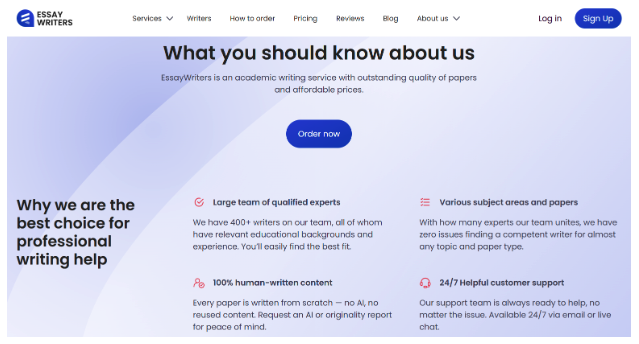Do Recruiters Call to Reject
As a job seeker, waiting for a response from a recruiter after a job interview can be nerve-wracking. In fact, waiting is often more stressful than receiving a call to find out we’ve been rejected for the position. Many people have asked me over the years about whether recruiters typically call to reject candidates or if they prefer to use other methods of communication.
Does a call mean I’ve got the job and an email means I’m being rejected or vice versa?
Understanding the recruitment process and the role recruiters play in candidate rejection can help alleviate some of the stress associated with job hunting. Recruiters use different communication methods, some automated, some more personal. In this article, I’ll talk about:
Several stages of the recruitment process and how likely you are to get a rejection call from a recruiter
The role a recruiter has when it comes to rejecting candidates
Do recruiters call or email candidates with bad news
The role a hiring manager has when it comes to rejecting candidates
Understanding Recruitment Processes
First, it’s important to realize that there is no standardized recruitment process that every company uses. I’ve worked with hundreds of employers as a recruiter and no two have ever had the exact same process. With that said, they all have some similarities that are important to understand. Let’s dive into the stages of recruitment that most companies use.
Sourcing
Recruiters are responsible for finding people to fill openings, a task called sourcing. This involves reviewing resumes that were submitted. If you’re rejected at this stage, there’s a high probability that you won’t hear from anyone to inform you of this. That’s why it’s best to not get hung up on any one particular job that you may apply for.
A growing majority of companies are making use of automated email systems in their ATS (applicant tracking system) which send out email rejections at this stage. But keep in mind that a recruiter has to move your file into the right status to trigger that automation. That doesn’t always happen. But when it does, it is always in the form of an email. I don’t know anyone who calls applicants to reject them.
Phone Screens
If you’ve made it to this stage, you’ve spoken to a recruiter on the phone most likely. This is the first interaction most people have with someone who works for the company. If you’re eliminated at this stage, chances are you won’t receive a phone call either. Some recruiters conduct dozens of phone screens every week and to personally call each one doesn’t make good business sense in most cases.
Chances are higher however that you will receive an email letting you know that they’ve decided not to move forward with you in the selection process. But in my experience, many companies won’t send any rejection email at this stage either.
Interviews
By this point, you’ve made it pretty far in the hiring process. You may meet with several people on the hiring team or just one manager that you could eventually report to. If you’ve made it this far, you and the hiring team have invested quite a bit of time into getting to know one another.
At this stage, it becomes more common that you’ll receive a phone call to reject you if the company is not moving forward with you. However, keep in mind that there are several communication loops that need to be closed before someone can deliver the news to you either way. It’s common for a recruiter to call and deliver the news, but it could take some time if they’re waiting on others to give them feedback.
Related Article: Here’s Why Job Offers and Feedback Can Take So Long
Job Offers
If you’ve made it to a job offer stage, usually there is a verbal offer made ahead of any written offer that you may sign later. I’ve extended thousands of job offers to candidates as a recruiter and the vast majority of the time, the recruiter extends the offer and works to negotiate salary and compensation. However, there are some managers I’ve worked with who prefer to extend offers themselves.
If you’re getting a call to extend a job offer, it could come from either the recruiter or the hiring manager.
Role of Recruiters in Candidate Rejection
As a recruiter, it’s my responsibility to provide feedback to every candidate, whether they are accepted or rejected. Rejecting candidates is not a pleasant task, but it is an essential part of the recruitment process.
Applicant vs Candidate
When I say it’s a recruiter’s job to provide feedback to every candidate, it’s important to define the term candidate. You are not a candidate because you applied for a job. You are an applicant.
Someone becomes a candidate once the recruiter or hiring team decides that they could potentially do the job and initiates the outreach process. This usually happens during the interview stage of the recruitment process.
I don’t necessarily consider people who have had a phone screen candidates yet, because at that point the recruiter is making quick calls to fill in missing information and determine if they should move them forward or not.
Don’t expect feedback or even a rejection email if you’re only an applicant.
Why Rejecting Candidates Is Important
Seventy-eight percent of job candidates believe that the way they’re treated in the hiring process is a clear indicator of how a company will treat their employees (LinkedIn Talent Solutions). Just as hiring teams assess candidate behavior and performance based on their interactions, candidates are doing the same thing.
Treating candidates with respect and providing feedback can help to maintain an organization’s reputation. You have to think long-term as well. As a recruiter, I may reject a candidate for a role, but have another role next month that is a much better fit for them. I want them to have a positive experience because they’ll be more likely to take my call next month and interview for the job I really want them in.
Should a Recruiter Coach Candidates
Some people have the wrong impression of who a recruiter works for and what their job entails. Recruiters don’t find people jobs. Recruiters find people to fill openings for the companies that pay them. They work for hiring managers.
Many recruiters will try to provide relevant feedback when they can, but this isn’t always possible. But don’t expect them to provide advice on how to improve a resume or improve your interview technique.
There’s one caveat to what I just said. If you’re a serious candidate for a role and working with an agency recruiter (someone who gets paid a commission when they fill an opening), they are more likely to help you improve your resume and prepare for interviews before you meet with the hiring team. But they will only usually do so in the context of this one job. However, that can be a game-changer for you because those recruiters usually have inside information about what the hiring team is looking for.
Do Recruiters Call or Email to Reject Candidates
What most job seekers want to know is whether or not calls are more common for moving them forward in the process or for rejecting them. The truth is when it comes to rejecting candidates, recruiters may use different communication methods and there is no one-size-fits-all approach.
Receiving a phone call doesn’t mean you’re moving forward in the process any more than it could mean that you’re being rejected. The same can be said of email. I know many recruiters who prefer to reject candidates and move them forward via email instead of by phone. It depends on the recruiter and the company’s procedure.
Volume Matters
When there are large numbers of candidates being managed by one recruiter, it is more likely that you’ll receive a rejection by email. This doesn’t have anything to do with the number of applicants. I want to be clear on that.
Consider that one corporate recruiter could be working with 5 different managers on 20 different openings. Emailing candidates allows that recruiter to quickly communicate decisions and move on to other candidates. They simply don’t have the time to personally call each and every candidate.
Recruitment Stage Matters
The stage you are at in the recruitment process also can influence whether you receive a phone call or an email. I’ve found that the further along you are, the more likely a recruiter will call you to convey the bad news. This ties into the volume issue I just discussed. If you’re in final round interviews, you’re probably one of three people. It’s much easier to call two people to convey feedback and that they won’t be moving forward than it is to call twenty.
In addition, I find that most recruiters have started building relationships with their candidates by the time they reach the later stages of the hiring process. You’ve probably had several interactions as time goes on. For many recruiters, they feel more compelled to deliver the news by phone after you’ve invested so much time into the process.
Experience Matters
Having a personal conversation that delivers the news of rejection to someone is not easy. It’s intimidating for most new recruiters. In my experience working with dozens of recruitment firms as a consultant and managing recruitment teams myself, I’ve found that the more experienced recruiters are more likely to be willing to call you and deliver the news.
It’s not that the conversation is any easier or more pleasant, but they know how to communicate this type of news because they’ve done it many times already throughout their career. They know how to be respectful and empathetic while also maintaining compliance with any company policies that may exist.
Policy Matters
Different companies have different policies around how recruiters and hiring managers deliver rejection and feedback. No matter how much a recruiter wants to help you and call you personally, they may not be allowed to.
Companies are constantly battling the need to provide a great candidate experience with the need to protect themselves from legal liability. Unfortunately, we live in a very litigious society, and over time I’ve only seen companies scale back feedback policies to manage risk. Know that some recruiters may not be permitted to call and discuss why they rejected you.
Which One Is More Common: Email or Phone Calls
In my experience working with many different recruitment teams, email is the most common medium for rejecting candidates. My assumption is that this is because it is immediate, to the point, and requires no additional interaction.
Role of Hiring Managers in Delivering Bad News
While I have found it rare in my career to see hiring managers directly communicate feedback and rejection to the candidates they don’t hire, it does happen occasionally.
If you are a hiring manager and you’re going to call or email a candidate with bad news, here are some tips.
Be clear
Don’t beat around the bush. I know this is not an easy conversation to have, but it’s important to be transparent about the reasons for rejecting them while at the same time avoid being overly critical or negative.
Be empathetic
Receiving bad news can be crushing for a candidate, so it’s important to show empathy and understanding. One of my favorite recruiters, Erin Riska, coaches people to tell the candidate why the job isn’t a fit for them, not why they’re not a fit for the job. Try it!
Offer actionable feedback
Providing feedback is challenging because sometimes we don’t have much that can help the candidate. We also have to be aware of our own biases. What I prefer in a candidate, another manager may hate. I find it best to share if there are experiences or skills that a candidate may not have communicated that others did. This will help candidates identify skill gaps and improve their communication.
Of course, not everyone can handle feedback well, so use caution.
Maintain professionalism
You are representing your company, so keep it professional. Even if you really liked them and you’ve met them three times and they seem like a great person, keep it professional. And also avoid making promises you can’t keep.
Do Recruiters Call to Reject Candidates Recommended Reading
Rejected for a Job I Was Perfect For [What to Do Next]
How to Ask for Feedback After Rejection
Hiring Manager vs Recruiter [Who’s Really Responsible for Hiring]
Cole Sperry has been a recruiter and resume writer since 2015, working with tens of thousands of job seekers, and hundreds of employers. Today Cole runs a boutique advisory firm consulting with dozens of recruiting firms and is the Managing Editor at OptimCareers.com.












